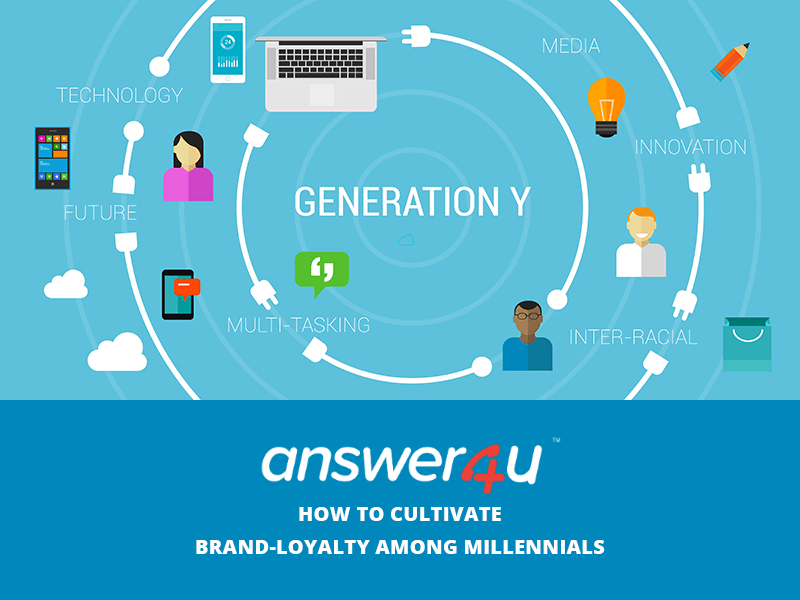Millennials - those born after 1980 - are statistically seen as “unattached to organised politics and religion, linked by social media, burdened by debt, [and] distrustful of people.”
The Pew Research Center has numerous studies corroborating this.
So is this bad news for building brand-loyalty? Not necessarily. Research has also indicated that Millennials are part of the most brand-loyal generation ever, reporting that they’ll remain steadfast in their dedication to brands that they currently purchase. Building a relationship with them is both tricky to pull off and incredibly fruitful when you get it right, so here’s how.

Refine Your Digital Game
This is a generation which never had to adapt to new technologies, or even shamefacedly ask someone younger what a ‘selfie’ is. These guys and girls are ‘digital natives’; they’re online, and they can navigate the web like pros without ever seeming to have needed to learn.
That means businesses need to bring their digital A game. Let’s break your online responsibilities down into three main areas:


Nearly 90% of Millennials use two to three online devices each day. Smartphones are just as important as desktops and laptops. If you don’t have a mobile-friendly website, get one.


Roughly 81% of Millennials are on Facebook, and other social networks are almost as popular. 62% of this generation say that they are more likely to become loyal if a brand engages with them on social networks, while 43.5% will use social media to spread the word about products or services.


Gen-Xers and Baby Boomers might be all about traditional media, but 33% of Millennials rely on blogs before they make a purchase; only 3% trust TV news, magazines, and books. Start a company blog and provide plenty of ways for customers to leave reviews.
Engage, Don't 'Sell'
Optimising your site for smartphones, getting on social media, and maintaining a blog should be seen as starting points. Finding your market is one thing, appealing to it is something else entirely, especially when you’re dealing with a generation that is so easy to alienate.
Millennials are markedly less trusting than previous generations; just 19% say most people can be trusted. They’re also hard to influence via traditional advertising, with only 1% reporting that a compelling advertising campaign would make them trust a brand.
The way forward is to be authentic. Millennials connect with people rather than with brands, so start by adopting a more casual, personal tone when you’re creating content, and be sure to reply to any comments in a friendly manner. It also helps to tickle the Millennial funny-bone; 7 out of 10 Millennials will share marketing content if it is deemed sufficiently humorous. Above all, avoid alienating these consumers by being too sales-orientated. Content should be about creating a connection; the sales will come later, so you don’t need to get pushy.
Give Back
Millennials are generally more socially-conscious than previous generations, and are immensely distrustful of businesses perceived as being concerned solely with profit. Tie that in with their desire to deal with brands on a more personal level and it should come as no surprise to learn that 75% report that it is important for a company to contribute to the community, particularly on the local level.
Engage in charitable pursuits, blog about it and share events on social media and ask your followers to engage with the charitable endeavour in their own way.
The average Millennial can be hard to reach, but the effort needed to forge a connection will more than pay for itself. Follow this guide to make sure you’re appealing to the newest generation of consumers.